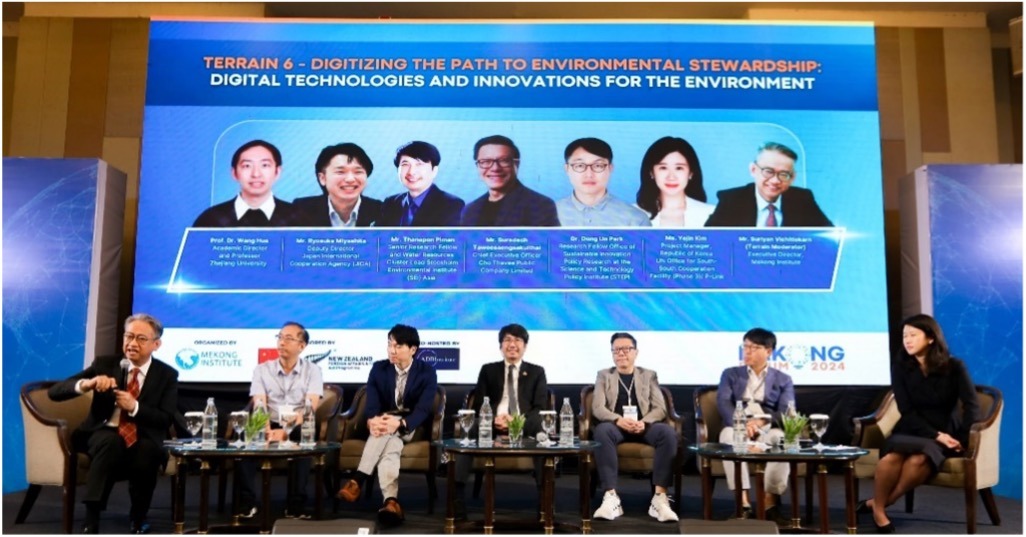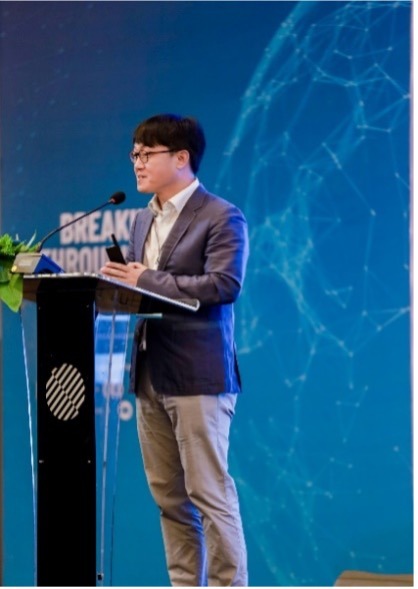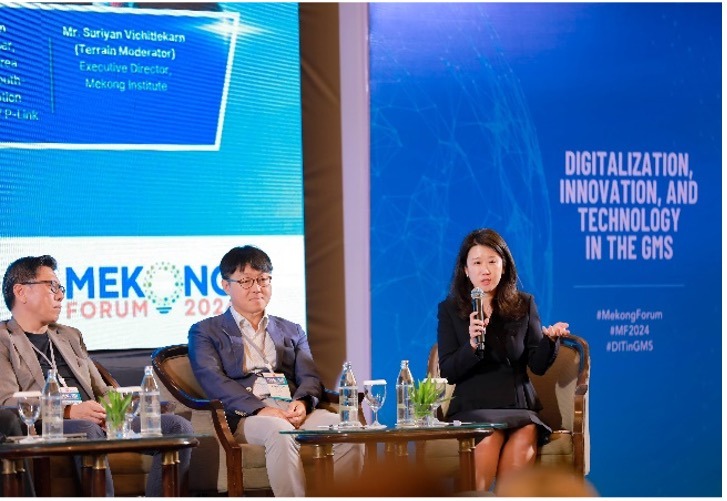August 1, Khon Kaen
The Mekong Forum 2024, held in Khon Kaen, Thailand from July 31 to August 1, centered on the theme of “Digitalization, Innovation, and Technology in the Greater Mekong Sub-region (GMS).” Organized by the Mekong Institute (MI), the forum aimed to harmonize efforts across the subregion by aligning with broader regional frameworks such as the Greater Mekong Subregion Economic Cooperation Framework 2030 (GMS 2030), the ASEAN Digital Integration Framework, and the Master Plan on ASEAN Connectivity. The forum explored how digital and technological advancements can be harnessed to address the unique challenges and opportunities in the GMS, including bridging digital divides, fostering a vibrant innovation ecosystem, and promoting sustainable development.
Breakout Session 6: Digitalizing Environmental Stewardship
One of the key sessions, Breakout Session 6, was co-organized by MI and the Asian Development Bank Institute (ADBI) and focused on “Digitalizing the Path to Environmental Stewardship: Digital Technologies and Innovations for the Environment.” This session delved into applying digital technologies in both urban and rural areas within the GMS. Presenters and panelists represented a diverse array of organizations, including development cooperation agencies, academia, and UN agencies.
Urban-focused case studies were presented by representatives from the Japan International Cooperation Agency (JICA), Khon Kaen Smart City, and Zhejiang University. Meanwhile, rural development initiatives were highlighted by speakers from the Stockholm Environment Institute (SEI) Asia, the Science and Technology Policy Institute (STEPI) of the Republic of Korea, and the UN Office for South-South Cooperation (UNOSSC).

P-LINK’s Contribution to Rural Development
P-LINK provided an overview of the history and principles of South-South and Triangular Cooperation, emphasizing the value of demand-driven technical exchanges that embody the spirit of this cooperation. The project also shared ongoing technical pilots in Lao PDR and Thailand, which are designed to facilitate rural development using the Water-Energy-Food (WEF) Nexus approach in selected sites.
Path Forward for Digital and Technological Applications in the GMS
The panel discussion, moderated by Mr. Suriyan Vichitlekarn, MI’s Executive Director, reviewed key learnings and the path forward for advancing digital and technological applications in the GMS. Dr. Dong Un Park, Research Fellow at STEPI, highlighted the importance of strengthening strategic partnerships with local stakeholders. “To ensure sustainable impact and local ownership, we need to foster active engagement of local governments, academia, civil society, the private sector, and other relevant stakeholders in designing and transferring tailored digital technologies and innovations,” he said.


Ms. Yejin Kim, P-LINK Project Manager at UNOSSC, underscored the need for national governments and development stakeholders to map out completed and ongoing similar development initiatives in the Mekong subregion. “Rather than working in silos, collaboration among multi-stakeholders can amplify the impact on communities, make efficient use of resources, and increase visibility and advocacy—efforts that can be facilitated by the UN Office for South-South Cooperation (UNOSSC),” she added.
Conclusion: Fostering Cooperation for Environmental Stewardship
The session concluded with a strong emphasis on fostering South-South and Triangular Cooperation as a crucial mechanism for promoting practical solutions for environmental stewardship in the Mekong subregion and beyond. The discussions will continue in future platforms, promoting integrated development through multi-stakeholder collaborations and South-South exchanges.
